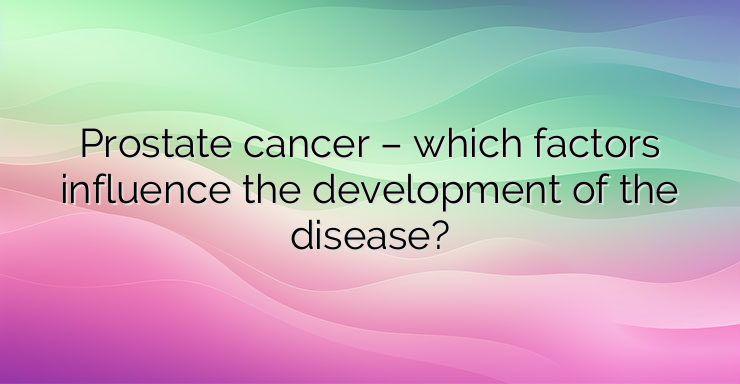Prostate cancer occurs when a series of genetic mutations in the cells’ DNA cause them to divide uncontrollably. The exact reasons for this are still unclear, but it is believed that most cases of prostate cancer develop due to a combination of factors. Known risk factors for the disease include age, race, and geographic location. Scientists are also looking for potential disease links to environmental pesticide and herbicide exposure, diet, vitamin D deficiency and even sexual activity. A family history of prostate cancer and certain genetic mutations are also associated with developing the disease at a younger age. When cancer cells divide and grow, they form a tumor that can eventually invade nearby tissues and sometimes break off and spread (metastasize) to other parts of the body. Risk factors are conditions that are associated with an increased risk of developing prostate cancer, but do not necessarily cause the cancer. Those men who have more risk factors may benefit from being screened more often or at an earlier age than men without those risk factors. The risk of prostate cancer increases with age, and approximately 60% of cases are diagnosed after age 65. This condition is uncommon to develop before the age of 40, and when it is seen in younger men, it is often associated with having cases of the condition in males in the patient’s family, as well as cases of breast cancer in women from the family. The role of diet in the development of prostate cancer has long been debated. It appears that a diet rich in red meat and dairy products, as well as high in calcium, may be associated with an increased risk (although not all studies have found these associations) for prostate cancer. Conversely, a diet rich in fruits and vegetables may have a protective effect. Whole milk consumption was also found to be associated with an increased risk of prostate cancer recurrence in men who already had the disease, according to a 2017 study. Bibliography: American Cancer Society. Prostate Cancer Risk Factors American Cancer Society. How family history affects prostate cancer risk Krstev S, Knutsson A. Occupational risk factors for prostate cancer: a meta-analysis Verywell Health. Causes and Risk Factors of Prostate Cancer


Leave a Reply